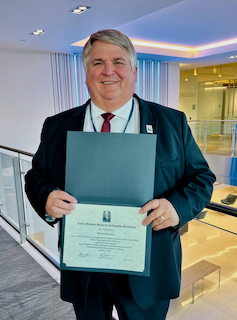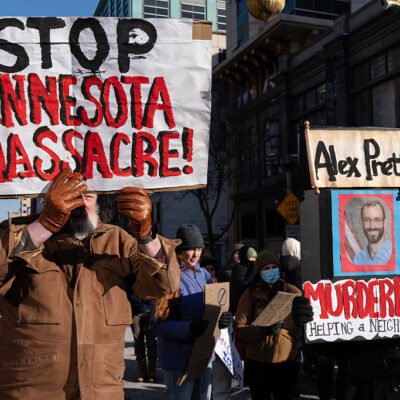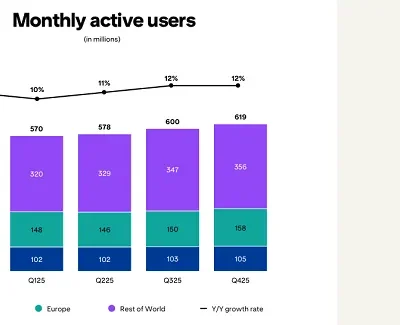We were sad to learn last week that Mike Bisenius, a 2022 graduate of the Master of Arts in American History and Government (MAHG) program, has passed away after a brief, intense illness. Mike was a highly dedicated teacher. Last fall we ran a story about Mike, who’d been named 2023 North Dakota History Teacher of the Year by the Gilder Lehrman Foundation. In memory of Mike Bisenius, we present an excerpt from the story. Written in his own words, it shows his thoughtful, resourceful approach to teaching. Our deepest sympathy to Mike’s family, friends, students, and colleagues.
Because of a refugee resettlement program in our community, our students are aware of the world outside of North Dakota. A number of my students immigrated here with their families from places like Syria, Iraq, Iran, Afghanistan, Nepal, and Somalia. I ask them about their experiences; it helps to put American history and government into perspective for everyone in the class. At one time, I taught a class for English Language Learners (ELL) only. I tried to get their parents involved—I would tell students, on the first day of class: “Ask your parents to describe what government was like in the country you came from. How did the laws work there?” Many came back to class reporting that their parents fled their countries for religious reasons. For example, students from Nepal or Bhutan explained that their families had been promised religious tolerance by the government, then a new government took over and withdrew that tolerance. Other students’ families had gotten caught in the crossfire of tribal wars, because they belonged to neither side of the conflict.

Occasionally, if I stepped out of my classroom between periods, a fight would break out. Once I entered the room to find a tiny girl lifting her desk, preparing to hurl it at a boy. She had already thrown her shoes and books at him. I don’t know what he’d said to her, but I knew some of my students had grown up in refugee camps where boys had learned not to respect women. This girl probably had been abused. All the students were yelling, in their own languages, and I had no idea what anyone was saying. So, I began yelling at them in the bit of Norwegian I’d learned from my immigrant grandmother. Suddenly they stopped and looked at me, like, “What are you doing, Mr. Bisenius?” I said, “Well, I got your attention.” I sent the boy to the principal’s office and the girl to an ELL room where there were teachers who knew her well and could help her calm down, and then class began. . . .
. . . I hope students leave my classroom unafraid to ask questions—especially to ask “Why?”—the question I so often ask when they state their opinions. . . . Kids may get frustrated when I ask them “Why?”— but later, they appreciate it. A few years back, my family and I were out eating supper. Although I didn’t see him, a former student saw me in the restaurant and paid for our dinner. I wish I knew who that student was; I would love to thank him.


